How did globalist bankers take over Canada? (The Trillion-Dollar Question)
How Pierre Trudeau sold out Canada in the ´70s and how Harper finished the job.
The Trillion-Dollar Question
by Crow Qu`appelle
If there were an awards ceremony for anarchists, I would nominate Rocco Galati for a lifetime achivement award.
I´m sure this proposal would raise a few eyebrows. After all, Galati isn´t in the streets or manning the barricades. As far as I can tell, he doesn´t have much to do with other anarchists. And he´s a lawyer.
Those of you who know me know how I feel about lawyers, and the rest of you can probably guess. But there´s exceptions to every rule, and Galati is living proof that some lawyers are amongst the most stalwart defenders of human freedom in the world today.
But that´s all I´ll say about Galati for now, because we`ve got a lot of ground to cover today.
Those of you who read Taboo and the Zeitgeist will know that I have been on somewhat of a journey of discovery regarding the surreptitious influence of globalist bankers both on world history and the present Great Reset.
It´s not like all of this is totally new to me, because I did have a post-9/11 conspiracy theory phase where I did educate myself about fractional reserve banking and all of that. But honestly, it all kind of makes my head spin, because I don`t believe in economics.
Clearly, economists exert great influence on the world, and there must be something to the financial wizardry of interest rates and financial instruments and all of that. But the entire field seems to be surrounded by a series of a moats designed to prevent understanding of the subject.
It`s not hard to guess why. The people who control academia don`t want you to figure their scam out. Therefore, they hide behind a bunch of false theories like Malthusianism, Marxism, and Neo-Liberalism. Study that? No thanks.
If you ask me, the only reason to study economics is to find out where the bodies are buried, and chances are your friendly local economics professor isn`t about to tell you, if he even knows. Most academics know better than to bite the hand that feeds them.
All this to say that I want to state up front that I do not understand economics well. So why write about then? Well, the truth is that I suspect that I understand economics at least as well as most people, and perhaps much better. Even if I don`t have answers, I’m sure I can raise some interesting questions.
Okay, with that disclaimer out of the way, let`s do this.
I think that many of my readers feel, as I do, a tremendous debt to James Corbett of The Corbett Report for penetrating the many layers of deception that prevent people from understanding the financial system.
There is, of course, his excellent documentary Century of Enslavement, which focuses on the history of the U.S. Federal Reserve.
But really, this is only scratching the surface. Corbett has also published great content about Bretton-Woods 2.0, the Glass-Steagall Act, CBDCs, and many other subjects very pertinent to the study of economics.
Perhaps most important is Why Economists Are Always Wrong, which will add many hours to the lives of people who take its message to heart (by sparing them the time they might otherwise spend listening to economists). Truly, Corbett has given the world a great gift with this episode, and I hope to improve the lives of at least a few people by directing them to it.
Corbett is by no means alone in his critique of the entire field of economics itself, by the way. The late David Graeber, for instance, penned an essay for the New York Times entitled Against Economics, which begins:
There is a growing feeling, among those who have the responsibility of managing large economies, that the discipline of economics is no longer fit for purpose. It is beginning to look like a science designed to solve problems that no longer exist.
A good example is the obsession with inflation. Economists still teach their students that the primary economic role of government—many would insist, its only really proper economic role—is to guarantee price stability. We must be constantly vigilant over the dangers of inflation. For governments to simply print money is therefore inherently sinful. If, however, inflation is kept at bay through the coordinated action of government and central bankers, the market should find its “natural rate of unemployment,” and investors, taking advantage of clear price signals, should be able to ensure healthy growth. These assumptions came with the monetarism of the 1980s, the idea that government should restrict itself to managing the money supply, and by the 1990s had come to be accepted as such elementary common sense that pretty much all political debate had to set out from a ritual acknowledgment of the perils of government spending. This continues to be the case, despite the fact that, since the 2008 recession, central banks have been printing money frantically in an attempt to create inflation and compel the rich to do something useful with their money, and have been largely unsuccessful in both endeavors.
We now live in a different economic universe than we did before the crash. Falling unemployment no longer drives up wages. Printing money does not cause inflation. Yet the language of public debate, and the wisdom conveyed in economic textbooks, remain almost entirely unchanged.
Now, keep in mind that Graeber was an economist, meaning that we can safely assume that he`s wrong here. As the savage critic Darren Allen has pointed out, Graeber was wrong about a hell of a lot.
So, how does all this relate to Rocco Galati? Well, he`s the only person that I`ve really seen expose how international bankers took over Canada.
It is well-known, at least amongst conspiracy realists, that there was a coup in the U.S. which resulted in the Federal Reserve, which is a private corporation, taking control of the U.S. monetary system. But what about Canada?
You might be thinking at this point: ¨Hey, wait a minute, Crow, Canada is ruled by the British monarchy. Are you saying that there was a time when bankers didn`t control Canada?¨ It is well-known, I think, that London is the capital of the International Monetary and Financial System (IMFS) and that the British Royal Family is very cozy with the bankers who control it.
This may be true, but there is still a story to be told, and the only person that I`ve seen tell it is Rocco Galati. And really, I mean that. I grew up in Ottawa, my father was a reporter on Parliament Hill. I did my high school co-op placement at a Leftist think tank called the Polaris Institute, and I went to church with an NDP member of parliament. And yet no one once ever mentioned the true impact of Pierre Eliot Trudeau`s treacherous skulduggery back in the 1970s.
It was for this reason that I initially got so excited when I came across the work of Matthew Ehret, who does indeed expose the crimes of Canada`s most famous cuckold. It turns out that Pierre Eliot Trudeau was groomed by a not-so-secret society called The Fabian Society, which operates out of the London School of Economics.
Now, let me clarify what I mean by true. I`m not accusing Ehret of lying about Canadian history, if by lying you mean presenting factually inaccurate information. I haven`t found a single error in his historical material. However, the off-the-wall wrongness of his claims about indigenous land defenders certainly casts a long shadow over the rest of his work. But let`s pretend for a minute that every single thing he says about Canadian history is factually true.
That doesn`t preclude him from using his historical knowledge to mislead people. One can easily string together facts which are each themselves true into a narrative which is essentially fallacious.
For example, I could say that the particularly barbaric nastiness of the Conquista was a direct result of a European inferiority complex resulting from the repeated embarassing defeats at the hands of Muslims during the Crusades.
Is that story true? I don`t fucking know. It sounds like it could be, doesn`t it? If I throw in a bunch of facts and added some citations, I could be probably make it sound quite plausible, especially to people who don`t know much about the history of the Crusades, which is most people.
My point is that facts can easily be presented in a narrative which is misleading, yet doesn`t contain any factual errors. Sayings like ¨the history books are written by the winners¨ and ¨history is the autobiography of a madman¨ really only scratch the surface of the Problem of History.
Really, history is story-telling, and there are ineliminable challenges if one wishes to study history objectively. Truly objective history, like truly objective journalism, is not humanly possible. All story-tellers select some facts from the available information and omit others, and that process of selection is a subjective one. Telling a story involves a creative process, therefore it is no exaggeration to say that all history is made up.
Anyway, I suspect this is what Ehret is up to. It`s really quite clever, because it takes advantage of the fact that most Canadians know only a little bit more than sweet fuck-all about their history.
Why is this? Well, there exists a perception that Canadian history is boring. It isn`t. The problem is that that all of the interesting parts of Canadian history make Canada look bad, so they don`t teach it in Canadian universities.
Furthermore, Canada never got around to creating a national mythos. Before, during, and after the two world wars there was an effort to make up for lost time, but the project had been abandoned by the 1970s, when they made Terry Fox our national hero and called it a day.
Ehret uses the fact that most people are ignorant about Canadian history in order to mislead and misinform people. This technique is called ¨pacing and leading¨, and it`s one of the simplest and most effective means of building rapport in order to persuade people.
How does pacing and leading work? Basically, you start out by saying things that you know people will agree with, and keep going until they get into the habit of agreeing with you. Then you hit them with something that wouldn`t necessarily occur to them on their own. Because it follows from their own thought process, they are more likely to accept it.
Here`s the formula:
(Fact) + (Fact) + (Fact) + (Conclusion you want the other person to come to)
Note that deception is not implied here. If force is the weapon of the weak, then so is deception. Persuasion need not be deceptive to serve its purpose, which is an important thing to keep in mind when studying propaganda. The best propaganda is not refutable by facts.
An example might be instructive here. Let`s say you want to fuck your girlfriend in the ass for the first time. She`s not against the idea, necessarily, but she`s not super into it either. You might begin by reminding her of a time when she tried something new and loved it. You might then get her to agree that she likes trying new things and have her affirm that she sees herself as an adventurous person. You might then establish your credibility as an expert on the subject of anal sex by sharing stories of previous positive experiences.
(Remember that an expert, for all intents and purposes, is just someone who knows more than you do about a given subject. Being an expert is easy. All you need is someone who knows less about something than you do.)
You might then see if she agrees in principle that said experiences sound like they could be fun. Then you propose some baby step that´s easier for her to say yes to than ¨Hey, can I put my dick in your ass?¨
(Patience is key. Alcohol helps.)
So by no means am I against pacing and leading. All good writers do it. But it can be used deceptively as well. In that case, the formula would be:
(Fact) + (Fact) + (Fact) + (Lie)
It`s really quite clever. But you`re going to have to go back to the drawing board, Matt. We`ve figured it out.
Ehret uses historical facts the way that someone who is winning in poker uses their chips. Someone who has more chips can afford to make bigger bets, thereby dominating their opponents. This is called throwing your weight around.
Because Ehret makes rapid-fire references to many obscure episodes of Canadian history, most people are too dazed to figure out what`s happening. He can bluff like a fucking champ, all the way up to the point where his audience, which presumably is comprised of people dead-set against technocracy, nods along as he promotes his ¨anti-technocratic inter-continental choo-choo train¨, as one of my readers put it. Maybe they can name it after Patrick Wood.
It`s truly remarkable. As my friend Sandy says: ¨If you can´t dazzle ´em with brilliance, baffle ´em with bullshit.¨
Ehret uses his historical knowledge like Jackson Pollock uses paint. He flings it about willy-nilly, and the result is an indecipherable amalgam of amorphous shapes.
(Not hating on Jackson Pollock, by the way. I think Abstract Expressionism is great! But for those people who doubt that hidden hands seeks to influence popular culture, however, it`s worth noting that his work was sponsored by the C.I.A., apparently as part of the campaign of ideological subversion that people such as myself have referred to as The War on Meaning.)
Okay, I´m rambling again. Where was I? Oh yeah, this essay is an expansion of the question that I asked Ehret in People Respect You More When You Admit When You`re Wrong. Let`s recap:
On your website, you claim that part of your mission is to ¨help historians shed light upon the suppressed history which every Canadian has a right to know, with the faith that with a greater understanding of our past, we may not repeat its mistakes as we prepare for our future.¨ Now, that sounds like a great mission. However, I have yet to see you talk about what I would consider to be some of the most important hidden history of Canada, such as the B.I.S. takeover of the Bank of Canada under Pierre Elliot Trudeau and the 2012 Canada-China FIPPA trade deal, signed by Stephen Harper, which basically cedes Canadian sovereignty to China (as least so far as control over natural resources is concerned). Could you please clarify your position on COMER and FIPPA?
Okay, so most of you are probably wondering what COMER is. This will bring us back to Rocco Galati.
COMER stands for Committee on Monetary and Economic Reform. It is a Toronto-based organization which argues for monetary reform. Sounds boring, right? Bear with me for a second, though. This is important.
Back in 2015, the C.B.C. publishes this article, which includes a 20-minute video (with an anarchist!) entitled The Case Against Bank of Canada. Can you imagine the CBC allowing anything like this in 2023? That was just 8 years ago, and I think it speaks volumes about how much journalism has changed since then.
Honestly, I`m thankful that my father, who was a reporter for the Canadian Press, didn`t live to see the COVID era. Not only did Canadian journalism die, but there`s been a line-up of hacks waiting their turn to fuck its corpse ever since. I can only imagine the agony that the few remaining journalists with a shred of self-respect have suffered over the past three years. If any of them happen to be reading this, all I have to say is GET OUT NOW.
But anyway, the article reads:
The Bank of Canada was set up in 1935 in the wake of the Great Depression to provide a means for settling international accounts and to provide interest-free loans to government to finance infrastructure investments.
Projects like the St. Lawrence Seaway and the Trans-Canada highway were funded in this way, and the central bank also underwrote Canada's Second World War effort as well as the building of hospitals and universities.
But in 1974, the central bank stopped providing interest-free loans to government so it could join the Bank for International Settlements, a kind of central bank of central banks.
Galati argues that from then on private banks became government's lender, contravening the act that established the central bank.
He has launched legal action, beginning in 2011, to rule on the constitutionality of the central bank's current role. His argument is that private banks are dictating the terms of Canadian debt, usurping the role of the Bank of Canada.
So, did the Bank of International Settlements take control of the Bank of Canada in the 1970s? Now I`m not an economist, which means that I`m not necessarily wrong when I say that it would certainly seem so. However, as I have previously stated, I´m a diagnosed schizophrenic who believes in leprechauns. Whether that makes me more or less credible than an economist is for each of you to decide for yourselves.
In another article about the lawsuit, Galati is asked why Canadians should care about the case. He responds:
“Because they’re paying $30 or $40 billion a year in useless interest. Since ’74, more than a trillion to fraudsters, that’s why they should care.”
That same article explains:
In 1974, the Liberal government of Pierre Trudeau was quietly seduced into joining the Bank for International Settlements (BIS) – the powerful private Swiss bank which oversees (private) central banks across the planet. The BIS insisted on a crucial change in Canada…
In 1974 the BIS’s new Basel Committee – supposedly in order to establish global financial “stability” – encouraged governments “to borrow from private lenders and end the practice of borrowing interest-free from their own central banks. The rationale was thin from the start. Central bank borrowing was and is no more inflationary than borrowing through the private banks. The only difference was that private banks were given the legal right to fleece Canadians.”
So there you have it. PET sold out Canada to a private bank in the 1970s. Now you know.
Who owns that private bank? Good luck figuring that one out. I offer some thoughts on the B.I.S. in Taboo and the Zeitgeist, which is definitely the most controversial thing I`ve ever written. Whoever it is, they`ve got a pretty strong claim to being the rulers of the world, given that they can literally create as much money as they want out of thin air.
Think about that for a second, and you`ll realize why Iain Davis puts the B.I.S. at the very top of the pyramid that he calls the Global Public-Private Partnership (which Paul Cudenec, Darren Allen and I call Technik.)
So, where does that leave us? Well, I guss it means that Canada isn`t a sovereign country. But what else is new?
The whole notion of Canadian sovereignty is a joke. Canada is a colony of the British Empire. It has never been sovereign. Furthermore, due to some very complicated history, Canada does not legally own all the territory contained within its borders.
Now, this is a tough concept for statists and racists to wrap their minds around, but the law is a strange beast. Arguably, if you believe that might makes right, such legal questions don`t matter, which seems to be the position taken by the Canadian Patriot Review.
Suffice it to say that part of my beef with Ehret is due to the fact that he clearly believes the whole notion of indigenous sovereignty is risible. Nor does he appear to value Canadian self-determination. I mean, this is the guy who wrote a book called In Defense of Manifest Destiny (sic).
I heard he`s working on a sequel called In Defence of Me Stomping On Your Face Forever. Can`t wait!
Speaking of Ehret, I wonder what he has to say about COMER. Let`s have a quick look-see, why don`t we? Let`s head over to the Canadian Patriot Review website and see what happens when you search COMER on your website. What comes up?
Ah, here we go, an article called Why COMER is a Trap. Interesting title. We`re off to a good start. It begins:
Most readers of the Canadian Patriot are probably familiar with a popular Canadian think tank which is promoting national banking by the name of COMER. Since COMER and lawyer Rocco Galatti have grabbed national headlines increasingly over the matter of their Supreme Court battle to re-constitute Canada’s National Bank as the sole lender of Zero interest rate loans to the government, it was deemed necessary to investigate the group in greater detail to best understand if COMER’s motives are honest or not. After a brief examination of their new website, I felt it rather important to write up a few harsh conclusions and underline my reasoning for drawing them.
Those pesky anarchists grabbing national headlines! Must be a psy op! What`s next?
It can be stated right off the bat that COMER is Delphic poison designed to attract relatively sane Patriotic Canadians who tend to think in our direction into a fetish frenzy around reviving the Bank of Canada as a mechanism to issue low interest loans to the government.
Delphic poison? Fetish Frenzy? What in the hell are you talking about, Matty-boy? Can I get you a glass of water? I think you took too much. Cynthia! Can you take care of Matt, please? I didn`t come here to trip-sit a statist spook.
He goes on to complain that:
COMER‘s newsmagazine is now full of articles by British psy ops agents like Andrew Coyne, Maude Barlow, Joe Stigliz, Paul Hellyer and David Suzuki Foundation directors.
Oh man, you fucking did it again. Did you just call Maude Barlow a British psy op agent? What leads you to believe that Maude Barlow is a British agent, and what proof do you have of this claim?
(Full disclosure - Maude Barlow was a friend of my father´s and the Council of Canadians has repeatedly financially supported my activism over the years. She is best known for her decades of activism opposing the privatization and commodification of water.)
While you´re at it, would you care to substantiate some of your other claims? If you´re going to accuse someone of being a psy op agent, you owe it to your audience to do better than that. Judge not lest ye be judged, motherfucker.
The biggest red alarm comes from the the objectives page of COMER. This page lays out the earth-based economy model. The thesis is pure entropy and is in direct opposite to everything the Committee for the Republic of Canada and International LaRouche Movement represent.
Committee for the Republic of Canada? Huh. Okay… So your patriotic vision of Canada involves it becoming a republic, and you´re opposed to it gaining independence from the Bank of International Settlements? So you want the citizens of your new Republic of Canada to start out as the loyal debt-peons of globalist bankers? You really are quite the self-styled patriot, Matty-boy. Your mama must be proud.
Okay, so that covers COMER. Let´s see what happens when we search FIPPA. Oh, God, are you serious? This is all that comes up:
Sorry, but nothing matched your search terms. Please try again with some different keywords.
For the few who know what FIPPA is, I rest my case. Clearly, Ehret is not what he pretends to be. Man, this is too fucking easy.
For the rest of you, I´ll do my best to introduce you to the subject, as well as point you in the right direction so that you can learn more.
Basically, Stephen Harper, who was prime minister before Justin Trudeau, sold out Canada to China back in 2012. Once you understand this, everything thats happened in Canada since March 2020 instantly makes more sense.
Anyway, in this 2012 article, Nikiforuk writes:
By Nov. 1 three of China’s national oil companies will have more power to shape Canada’s energy markets as well as challenge the politics of this country than Canadians themselves. And you can thank Prime Minister Stephen Harper for this economic treason.
The new agreement will not only support more foreign takeovers of Canada’s natural resources, but pave the way for CNOOC’s dramatic $15-billion purchase of Nexen.
That controversial deal, which the majority of ordinary Canadians oppose, represents the largest-ever overseas takeover of any firm by a Chinese national oil company.
A bit further on, Nikiforuk notes:
It’s the most significant trade deal since NAFTA, but you won’t read much about it in the national press. Given its deplorable content Harper appropriately inked the massive give-away in Vladivostok last month and then quietly tabled the deal in Ottawa without so much as a press release.
Moreover the deal “allows Chinese companies to sue Canada outside of Canadian courts. Remarkably, the lawsuits can proceed behind closed doors. This shift to secrecy reverses a longstanding policy of the Canadian government.”
So… I get it that most people don´t understand what a big deal FIPPA is, but aren´t you supposed to be a geopolitical analyst, Matty-boy? I find it extremely hard to believe that you could be blind to its importance. You must have written about FIPPA somewhere. Would you be so kind as to let me know where I could find your writing on the subject? While we’re on the subject, I´d like to ask whether you agree or disagree (on factual grounds) with Nikiforuk when he writes:
“Appallingly, the treaty would give Sinopec, one of the big Chinese backers of the Northern Gateway pipeline, the right to sue the government of British Columbia if it blocks the project. Sinopec could also demand that only Chinese labour and materials be used on the pipeline. Moreover, the treaty gives Chinese state owned companies ‘the right to full protection and security from public opposition.”
Now, I should state at this point that I don`t speak legalese, and the devil is always in the details in trade deals. If it`s this bad on the surface, can you imagine what kind of abominations are hidden in the fine print? I can almost hear Satan cackling when I think about it.
(This gives me the chance to make a point I`ve been wanting to make about technocracy. One of the worst aspects of Technik in that the specialization and compartmentalization it engenders eventually leads to a situation where only experts CAN understand what`s going on. This means that only experts are qualified to make informed decisions, and even then, they`re only qualified to make decisions about their area of expertise, not about the system itself. This is an aspect of technocracy that its conservative critics miss. Technocracy is a necessary consequence of a certain level of technological development. Ted Kaczynski is of course required reading for anyone interested in this subject, but I would also refer people to the work of Darren Allen. Probably the best place to begin is his essay The Technological System.)
Where does that leave us, then? Well, we`ve got to trust experts, don`t we? Well, yes, kinda… In God and the State, Bakunin wrote:
In the matter of boots, I refer to the authority of the bootmaker; concerning houses, canals, or railroads, I consult that of the architect or engineer. For such or such special knowledge I apply to such or such a savant. But I allow neither the bootmaker nor the architect nor the savant to impose his authority upon me. I listen to them freely and with all the respect merited by their intelligence, their character, their knowledge, reserving always my incontestable right of criticism censure. I do not content myself with consulting authority in any special branch; I consult several; I compare their opinions, and choose that which seems to me the soundest. But I recognize no infallible authority, even in special questions; consequently, whatever respect I may have for the honesty and the sincerity of such or such an individual, I have no absolute faith in any person. Such a faith would be fatal to my reason, to my liberty, and even to the success of my undertakings; it would immediately transform me into a stupid slave, an instrument of the will and interests of others.
Fuck yeah! He`s still the best, isn`t he?
On another note, all this sounds very time-consuming, doesn`t it? There are certain tricks, however, which will speed up the process. One of them is the simple question ¨Does the expert in question being paid to say what they are saying?¨ Several questions then follow, such as ¨Who is paying them?¨ and ¨Do I trust their employer?¨ But the most credible expert is the person who is not being paid, but is motivated by a desire to contribute to society in a good way.
This leads me to two people who I consider to be credible experts on the subject of FIPPA - Andrew Nikiforuk and Gus Van Harten.
For overall clarity and readability, no one beats Andrew Nikiforuk, who used to be my favourite Canadian journalist. Too bad he lost his mind over COVID.
Yet the last I heard, he was working as the manager of a grocery store somewhere in Alberta because he`s shut out of the Canadian mainstream media. He is the author of several books about the oil and gas industry in Western Canada, including the definitve work on Christian fundamentalist O.G. monkeywrencher Weibo Ludwig´s war against Big Oil.
If you really want to deep dive, I refer you also to the work to the investment treaty expert Gus Van Harten, law professor and author of a book whose title is sure to make your pussy wet.
Just to underscore how important FIPPA was and is, I´m going to post at length from Gus Van Harten´s detailed explanation of its finer points. As this article states early on:
Unlike most experts in the field of investment trade deals, Harten makes no income from the lucrative legal work of international trade arbitration. Investment trade lawyers typically make between $1,000 to $2,000 an hour.
To me, this is an important detail. If someone is volunteering their time to say something that they think is important, they are more credible to my mind than someone who is being paid to address the public.
Okay, make yourselves comfortable, ladies, and prepare yourselves for the Gus Van Harten experience.
This is from a 2012 letter to Prime Minister Stephen Harper urging for a full public review of FIPPA.
You ready for this? Here we go!
1. The legal consequences of the treaty will be irreversible by any Canadian court, legislature or other decision-maker for 31 years after the treaty is given effect. The treaty has a 15-year minimum term, requires one year’s notice prior to termination, and adds another 15-years of treaty coverage for assets that are Chinese-owned at the time of termination. By contrast, NAFTA for example can be terminated on six months notice.
2. Other investment treaties (aka FIPAs) signed by Canada have a similar duration and, in this respect, are exceptional among modern treaties. Yet none put Canada primarily in the capital-importing position. As such, the Canada-China treaty effectively concedes legislative and judicial elements of our sovereignty in a way that other FIPAs do not. Chinese asset-owners in Canada will be able, at their option, to challenge Canadian legislative, executive, or judicial decisions outside of the Canadian legal system and Canadian courts.
3. To elaborate, the treaty will likely be largely de facto non-reciprocal due to anticipated in-flows of Chinese investment to Canada outstripping Canadian investment in China. The deal gives Cadillac legal status to Canadian investors in China and vice versa. Yet Canada will be much more exposed to claims and corresponding constraints as a result of the de facto non-reciprocity. Two awards of a billion dollars-plus, and many over $100 million, have been issued against countries to date under these treaties, with more likely on the way. The awards are immune from judicial review, largely or entirely, and are often extra-territorial, depending on how the investor’s lawyers frame the claim.
4. Usually, the capital-importing position under these treaties is occupied by a developing or transition economy. Under the Canada-China treaty it is occupied by Canada. This poses a serious fiscal risk. Notably, to sue under the treaty, a Chinese company requires only a minority share in any Canadian enterprise or other asset in Canada. Based on interpretations by arbitrators in numerous cases, a Chinese investor could obtain, or may already have obtained, ownership in Canadian assets via a holding company in a secrecy jurisdiction such as the Cayman Islands, without losing its right to sue under the Canada-China treaty. What steps have you taken to ensure that there is not now and will not be in future Chinese-ownership of assets of which the government is unaware?
5. The only comparator for Canada in terms of fiscal risk is NAFTA. Canada has been sued about 30 times under NAFTA Chapter 11 although many cases were minor. Canada has paid out around $170 million in compensation in four cases to date. Other countries have been ordered to pay much more. Our biggest loss apparently came last May in a claim by Mobil Oil/ Murphy Oil involving R&D expenditure requirements in the Hibernia and Terra Nova projects. To my knowledge, a damages award has not yet been issued in that case although Canada was found by the arbitrators to have violated NAFTA. The decision reportedly undermined Canada’s standard approach to reservations in investment treaties with potential implications for the Canada-China treaty. It is not possible to confirm this because your government has not released the Mobil/ Murphy award against Canada in spite of your commitment to openness in these arbitrations. Would you please send me a copy of this award?
6. This heightens my concern that you have, in the Canada-China treaty, retained the right of the federal government not to release documents filed in Chinese investor lawsuits against Canada under the treaty if the government deems it not “in the public interest” to do so. This is not consistent with longstanding Canadian government policy to make such documents, and the arbitration hearings, public as a matter of course. If you intend to release the documents in any event, then why have you retained the right not to do so in the treaty? Other Canadian FIPAs state very clearly that all of the documents will be made public.
7. In terms of the fiscal risks, the Canada-China treaty goes beyond NAFTA in important respects and probably increases Canada’s exposure to lawsuits under NAFTA itself, on a non-reciprocal basis. Under NAFTA, the fiscal risk is contained by carve-outs of existing state and provincial measures from various NAFTA disciplines. The Canada-China treaty goes beyond NAFTA by extending a ban on performance requirements to existing provincial measures, including legislation. This ban will extend to Canadian provincial treatment of U.S.-owned, as well as Chinese-owned, assets due to the most-favoured-nation requirement under NAFTA. However, Canadian investors in the U.S. will not receive reciprocal treatment in relation to U.S. state measures. This will likely frustrate the ability of any federal or provincial government to ensure that value-added benefits of resource exploitation in Canada accrue reasonably to Canadians. Have you analyzed the risk-benefit comprehensively in light of all existing provincial measures?
8. Other legal protections that will be extended to Chinese investors under the treaty involve topics of expropriation and fair and equitable treatment, among others. These concepts sound straightforward but arbitrators in many cases have taken them in unanticipated and investor-friendly directions by requiring public compensation for foreign firms whose “legitimate expectations” were not met by a government or who were denied a “stable regulatory framework” over the lifespan of an investment. These arbitrator-made disciplines are far- reaching because they may preclude any changes to legislation that affect negatively a Chinese investor, without taxpayer compensation to the investor for its business losses. The possibility of the arbitrators reading such requirements into the Canada-China treaty adds to the fiscal risk and illustrates the concession of sovereignty under the treaty. So-called “stabilization clauses” are usually found in investment contracts signed with governments in developing countries, not treaties agreed by Canada.
9. The arbitration process itself is a long story. Briefly, it does a lot for the lawyers and arbitrators in the field, for investors from major capital-exporters (here, China or the U.S.), and for major multinationals able to entangle governments in never-ending legal contests of attrition, especially in the resource sector. Philip Morris has used these mechanisms to attack, for example, anti-tobacco measures in Australia and Uruguay. On the other hand, the arbitration process does little for, and may harm, anyone else. Above all, the process is not judicial in the manner of domestic or international courts and thus not reliably independent.
10. Canadian investors have never won compensation in any of their 16 known lawsuits against the U.S. and other countries under NAFTA and FIPAs. I have not heard this mentioned by Canadian lawyers and arbitrators who champion these treaties. It may be that Canadian companies have benefited by their ability to pressure governments to settle disputes in cases that are not public, but if so this reaffirms the danger that Chinese investors will pressure governments in Canada to back away from laws or regulations without public knowledge.
11. Because the arbitrators under the Canada-China treaty operate outside of the authority of the Canadian legal system and Canadian courts, the treaty appears to contravene the judicature provisions of the Constitution concerning the role of the superior courts. In various historical cases, the Supreme Court of Canada struck down legislation that contained broad privative clauses precluding review of tribunal decisions by the superior courts. The treaty’s transfer of judicial authority to arbitrators is analogous and, arguably, more far-reaching. Notably, the arbitrators may make non-monetary orders against states as well as issue damages awards for potentially massive amounts.
Whoa. Kind of makes your jaw drop, doesn´t it? Everything makes a lot more sense now, doesn´t it? ItAnd you thought I was kidding, didn`t you? Don`t blame me. I tried to tell you!
Okay, I`ll give you a minute to catch your breath. Let me put on some music.
Hmm, what kinda song feels right?
Ah, here we go:
So there you have it. If you thought that Canada was a sovereign country, now you know better. As the above song so aptly puts it:
Not interested in politics or don’t want to fucking face it?
But if we don’t stand against oppression we might as well embrace it
When we act as if it doesn’t affect us we do nothing but pretend
Because there’s not a single place on earth that doesn’t belong to them
Governed by the policies of an ignorant bigoted few
Targeted by the tactics they so willingly abuse
They manipulate our means of survival, discourage our desire to react
And insure our lack of involvement by keeping our apathy intact
Fuck what you think you know-don’t want to deal with politics?
Fuck what you think you know-but there’s no escape
Fuck what you think you know-where do you think you’re going to hide?
Fuck what you think you know-we’re behind enemy lines
Well, I guess that does it for this episode of ¨I´m right, Matt`s wrong.¨ I hope you enjoyed it!
As I was writing this, I received a surprising respectful message from Cynthia Chung, in which she says:
Hi NEVERMORE MEDIA, you seem like a thoughtful person and appear genuine in your writing such a piece on myself and my husband, however, I have to say that you have a great deal of misunderstanding and also oversimplification in your write up. I have relayed your write up to Matt and he will respond to you in what you have written regarding him.
Now, I feel like pretty good at reading tones, so it seems like Matt might actually be willing to engage in good faith debate, which would amaze me. I fucking love debating, and it`s extremely hard for me to find people willing to debate me for some weird reason, so now I`ve got something to look forward to. Obviously, I haven`t been engaged in the spirit of good faith debate in my recent posts, but I am quite capable of doing so. All that to say that I`m going to stop with all the insults and mockery for now. If someone of Ehret`s stature and intellect thinks I`m worth debating, I must confess I have a higher opinion of him.
Thanks, bud! Let me know if you ever want to go for a rip.


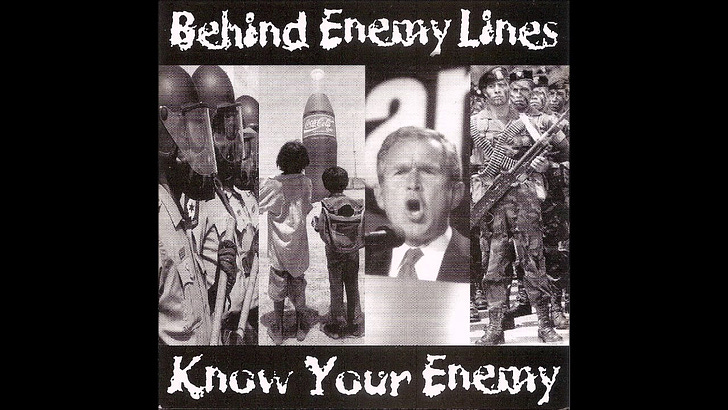


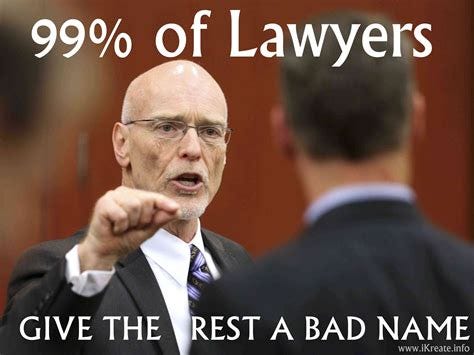
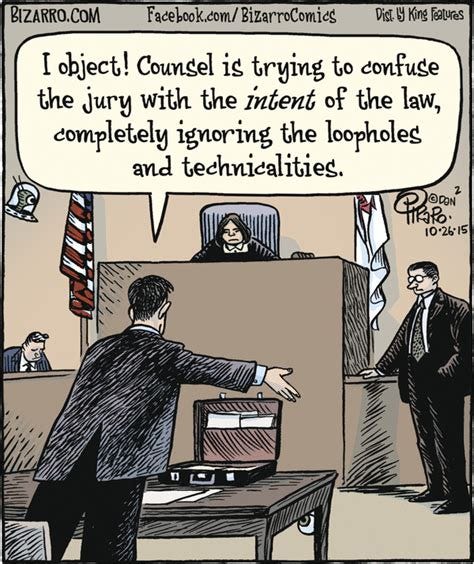


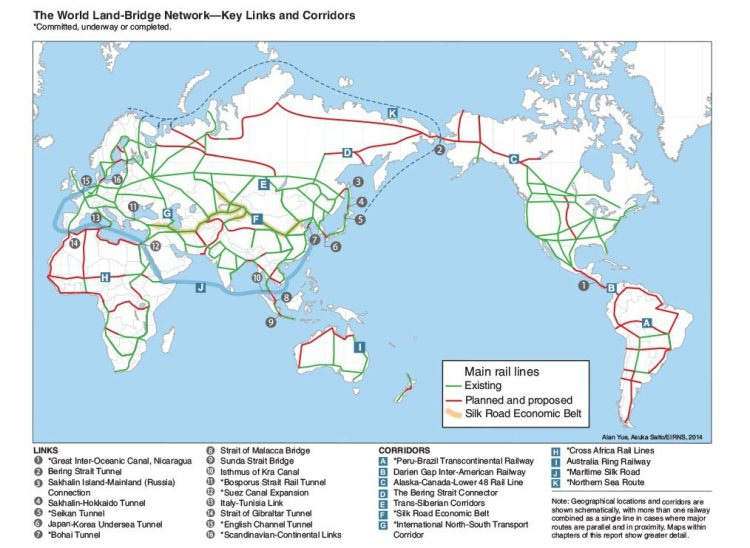
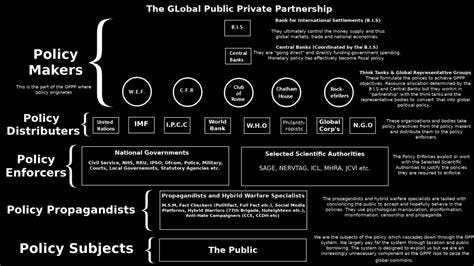
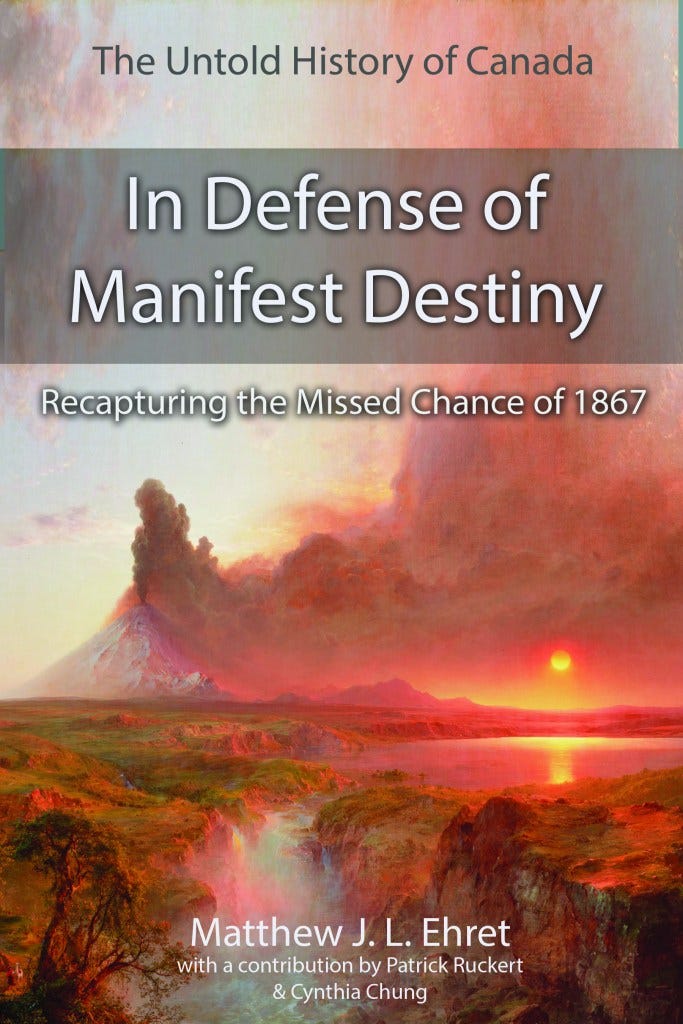


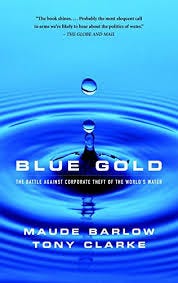
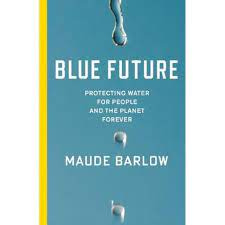
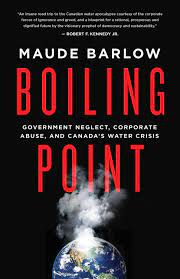

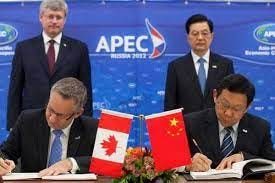
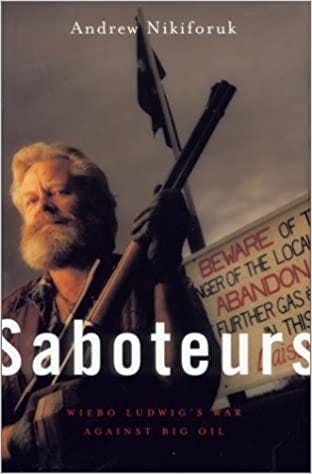
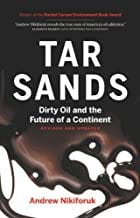
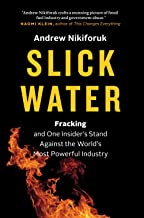
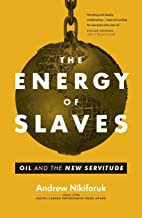
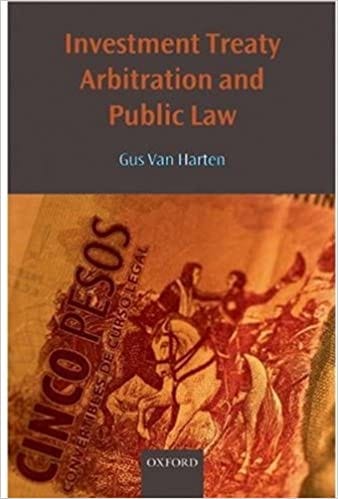

Let me be frank. You are not the only one who smells deception around Ehret and Chung. I suspect they are shilling for the red menace which is lately being marketed as the savior of the free world. And since implementation of said propaganda is going so well, not thanks only to these two, you can safely say that majority of western civilized populations are living in a huge cognitive disonance and are completely unable to do ANY research on almost ANY topic that concerns their lives. A cog.disonance that will lead into complete submission via CBDC induced transhumanism. I mean, risking to lose one's soul is something I am not willing to do. I am playing it safe.
Cheers mate, keep on chasing the truth! Truth heals and liberates.
Please Ask Matt why Putin and Xi and their respective governments are cool with the world economic forum plans of digital ID and cbdc type currencies.
Edward slavsquat constantly points out how these leaders pretend to be against the western corporate order, but they bend the knee when it's the UN or WEF.
Last I looked the UN didn't do anything to push for peace in Ukraine or settle the Taiwan mess.
Just remember that we were always at war with eastasia and chocolate rations are up 5 grams!
Double plus good!